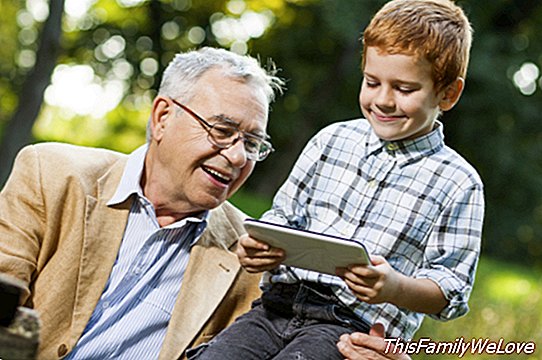20% of children believe everything they see on the Internet
Currently, more than 99 percent of the information that humanity generates every day, is only in digital format. The Internet has become the quintessential information medium for many millions of people in the world. However, it is always wise to navigate with a critical sense, keep in mind that we do not have to believe everything we read on the Internet.
Neither should we consider all the results offered by the search engines to be good, and we should always distinguish between the content and the paid advertisements.
20% of children believe what they see on the Internet
So, according to the N reportChildren and Parents: Media and Attitudes, published by the British company OFCOM, almost 20 percent of children aged 12 to 15 believe that the information found in search engines (Google, Yahoo, Ask ...) is true. And a large majority composed of 69 percent of respondents is unable to distinguish the results offered by the search engine of paid ads that appear in searches.
Regarding the videos, something similar happens. According to this study, 53 percent of children and adolescents who regularly use YouTube is not aware of the covert advertising that appears on this channel. Most do not know that youtubers who follow can be paid by certain companies to promote products or services. And is that half of the guys who have participated in the survey has said they do not know that advertising is the main source of funding sites like YouTube.
The critical sense of children on the Internet

However, the study offers another reading and it is no less true that 50 percent of the children and adolescents interviewed affirm that they are aware that the results may contain both true and false information.
Plus:
- 92 percent of children aged 8 to 15 think that the information found on web pages or social networks is not always true (regardless of the search engines).
- 97 percent of the children interviewed remembered the advice their parents had given them about Internet safety.
- 94 percent of British children surveyed said that if they found themselves in worrying, unpleasant or offensive situations on the Internet, it was advisable to go to their parents.
Children and Internet content in Spain
In Spain, six important field works related to the use of the Internet have been carried out, either by children or by Spaniards in general: two of them from the Protégeles Foundation. In practically all of them, that is to say, in five out of six, the methodology used is of a quantitative nature and, basically, they have been carried out through surveys. It is noteworthy that only in two of the investigations - both of the Protégeles Foundation - attention is paid to issues related to the safety of minors in the network such as: access to inconvenient contents, risks in chat rooms, minors as victims of threats, criminal behavior, etc.
Main concerns in the use of the Internet and parental control
In the Europe of the 25, Spain is the second most permissive country in the control of Information and Communication Technologies after Portugal. When asked if it regulates the use of electronic devices, 44% of Spanish households answered no.
- The computer is used almost freely by Spanish children, and therefore, computer games. Only 14% set rules.
- The control of Internet browsing is a bit higher, although approximately 2/3 of Spanish households do not control the navigation of their children.
- Countries whose parents are less protective of Internet use for their children are Hungary (23%), Portugal (20%) and Latvia (20%).
For a decade, many parents have been awakened by the need for control over Internet browsing and chats that children and young people can access (//www.internetsegura.net). As children reach adolescence, parental observation of their activities diminishes, but neither in a drastic way. A major concern is excess consumption. In the case of video games, for example, this concern rises to 48% in European homes.
Marisol Nuevo Espín




